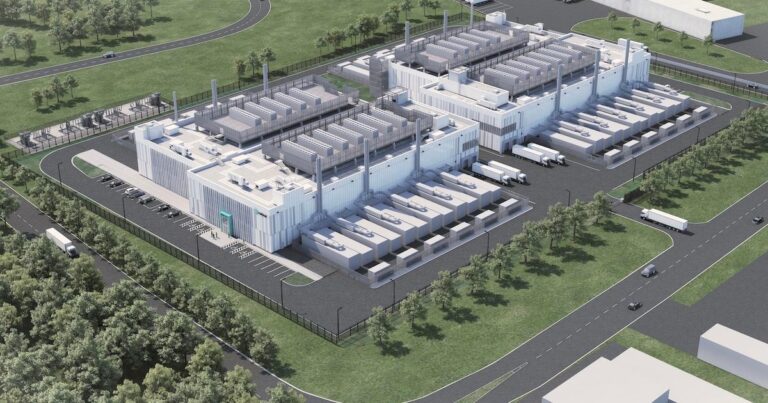But critics say such projects tend to create few permanent jobs and are heavy users of water and electricity.
According to real estate services firm CBRE, data center construction in metro Atlanta is set to grow 211% since 2023, the fastest growth rate of any major data center market in the U.S. Data center developers cite the Atlanta region’s land availability, power grid, workforce and government incentive programs as reasons for the increase in new construction, but the growth in data centers has raised concerns about power consumption and water usage.
Vantage, which proposed its first data center campus near Atlanta last year, did not respond to a request for comment. Its first project in Douglasville would span 1.7 million square feet across three buildings. The project, which will be larger than Atlanta’s Lenox Square Mall, is expected to open by the end of 2025.
The two new proposals are detailed in Development of Regional Impact (DRI) applications, documents the state requires for large projects that affect multiple jurisdictions: The roughly 697,000-square-foot data center would be built on undeveloped land southwest of Stacks Road and Mallory Road, and the roughly 754,000-square-foot facility would be built on undeveloped land west of Plummer Road and north of Riverside Drive.
The projects, located 10 miles apart, are named Stacks Road and Westlake, respectively, and are currently in the permitting stage. The Stacks Road facility is expected to open by January 2027, with the Westlake project opening a year later.
Neither DRI has disclosed how much they plan to build out the data centers involved. These facilities typically employ just a few dozen people once they’re up and running, but the expensive equipment inside often values the complexes at hundreds of millions, or even billions, of dollars.
Tech giant Microsoft, for example, is planning to build a $1.8 billion data center campus in Union City, one of the largest projects south of Atlanta, and received $75 million in tax breaks from the Fulton County Development Authority.


